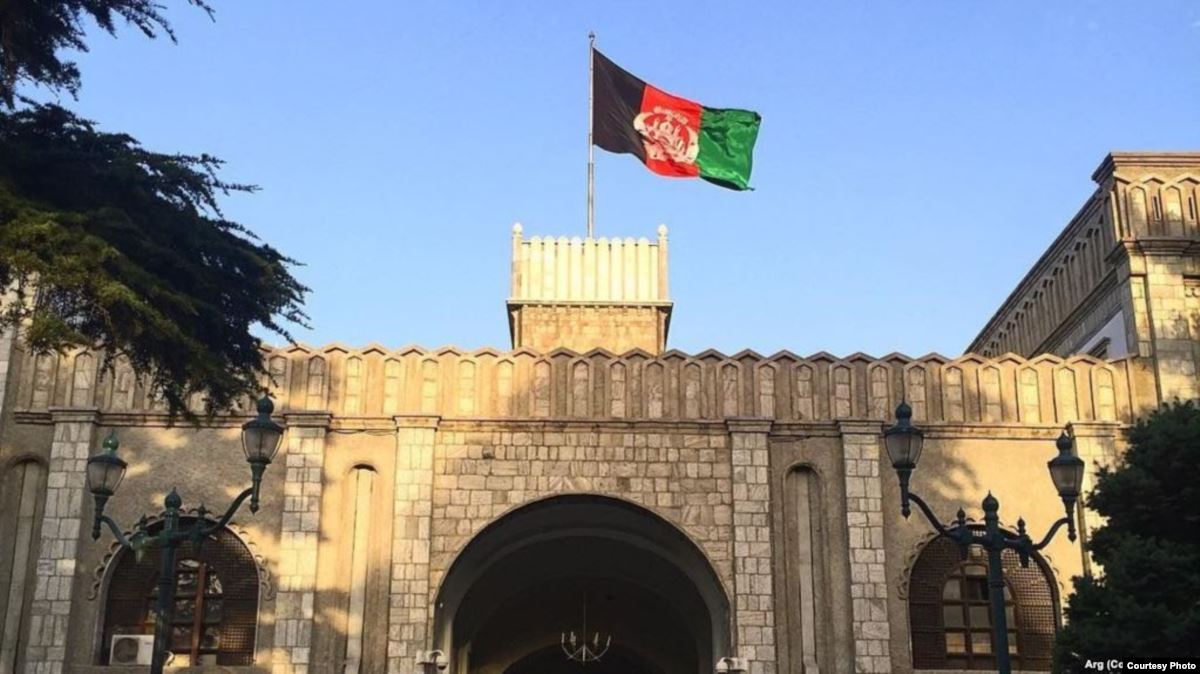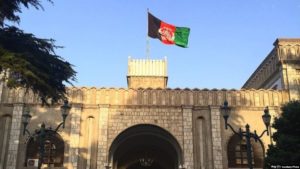Latest News
US-Taliban Peace Talks will be inconclusive without a ceasefire: ARG

 Afghan Presidential Office says there have not been any improvements in talks about ‘ceasefire’ and/or ‘reduction of violence’ between the US and the Taliban delegations for peace talks.
Afghan Presidential Office says there have not been any improvements in talks about ‘ceasefire’ and/or ‘reduction of violence’ between the US and the Taliban delegations for peace talks.
Sediq Seddiqi, the presidential spokesperson, says that the Taliban should have gone to Duha with a ‘ceasefire’ strategy because the reduction of violence does not hold any logic, legal and military sense, and does not have a practical aspect.
Peace Talks are in a strategic stage. On the condition of signing the agreement, the Taliban have submitted their will to the US to reduce violence. The USA, the European Union, and the UN have all agreed on the reduction of violence from the Taliban. However, the presidential office in Kabul considers ‘reduction of violence’ as baseless, and it wants the Taliban to declare a full ceasefire.
Hajji Deen Mohammad, deputy to the peace council, says, “In order to head start the negotiation and break the deadlock, the government is right to emphasize on ceasefire. However, there should always be open doors to negotiation. It shouldn’t be on hold.”
The Office of Chief Executive, on the other hand, is not on the same page with the government – it agrees with ‘reduction in violence’ to continue peace talks.
Some political experts believe that the government’s position regarding the preconditions may affect the progression of the peace talks.
Ahmadullah Alizai, head of the New Foundation Party of Afghanistan, says, “The neighboring and the International Community have agreed on bringing peace; the government should not stand against it.”
In the meantime, the internal security commission of the Afghan parliament has also asked all the parties involved, especially the Afghan government, to be flexible. Fida Mohammad Ulfat Salih, head of the internal security commission of the Afghan parliament, says, “I am sure once the negotiations proceed, one of the parties will become flexible, and we will reach to what we want.”
Now, the question is, what will be the consequences, if the opportunity to reach peace is lost because of the differences?
Khan Agha Rezai, a member of the internal security commission of the Afghan parliament, says, “If the peace talks end inconclusively, we will see cities getting out of the government’s rule, and there will be more insecurity.”
Meanwhile, the Afghan presidential office underscores that it will not agree with only ‘reduction of violence’ – ‘ceasefire’ is the condition.
Sediq Seddiqi, the presidential spokesperson, says, “All of our allies, the European Union in particular, in their meetings with the president of Afghanistan, have defended the position of the Afghan people, which is ceasefire and a ‘once and for all’ end to the war.”
The US talks with the Taliban have been considered as an opportunity to put an end to the war in Afghanistan. However, since the beginning of the talks, Kabul and Washington have had differences in several areas.
Latest News
Iran, Pakistan leaders raise concerns over ‘terrorist groups’ in Afghanistan

Following a two-day official visit to Pakistan, Iranian President Ebrahim Raisi and Pakistan’s Prime Minister Shehbaz Sharif issued a joint statement emphasizing the need to further expand commercial and economic cooperation and transform the common border of the two countries from a “border of peace” to “border of prosperity”.
The two leaders also strongly condemned aggressions and crimes of Israel in Gaza, and demanded an immediate and unconditional ceasefire, as well as unimpeded humanitarian access to the besieged people of Gaza.
Numerous other issues were also discussed but on the topic of Afghanistan, they jointly declared their commitment to the development of Afghanistan as a peaceful, united, independent country free from the threats of terrorism and drug trafficking.
According to the statement the two countries pointed out that the existence of terrorist organizations in Afghanistan is a serious threat to the security of the region and the world.
The two sides stressed their desire to strengthen cooperation in the field of fighting terrorism and ensuring security and creating a united front against terrorism.
They also discussed the importance of coordinating regional and international efforts to ensure security and stability in the region.
“While respecting the sovereignty and territorial integrity of Afghanistan, the two sides recognized that increasing participation of all strata of Afghans in basic decision-making will lead to the strengthening of peace and stability in this country,” the statement read.
Latest News
Over 1,000 Afghan refugees forced out of Pakistan in one day

The Ministry of Refugees and Repatriations (MoRR) says over 1,000 Afghan migrants were forcibly returned from Pakistan on Tuesday through Spin Boldak border crossing in Kandahar province, the ministry said in a statement.
The ministry stated that based on information provided by the Spin Boldak Kandahar border command, these returnees comprised 191 families, totalling 998 people.
In addition, three migrants released from Pakistani prisons were also returned, according to the statement.
The statement added that after registering the returnees, the refugees were referred to the offices of the International Organization for Migration (IOM), the World Food Program (WFP) and the United Nations High Commissioner for Refugees (UNHCR).
Each family received 10,000 afghanis – paid to them by the Islamic Emirate.
In another statement, the ministry said that 2,783 migrants living in Iran voluntarily and forcibly returned to the country during this week.
Latest News
Afghanistan’s minister of transport and aviation attends regional meeting in Uzbekistan

Hamidullah Akhundzadeh, acting Minister of Transport and Aviation, headed a delegation to Uzbekistan for a ‘Six-Party Corridor’ meeting that included representatives from Afghanistan, Russia, Belarus, Pakistan, Kazakhstan and Uzbekistan.
On the sidelines of this meeting the Afghanistan delegation discussed trade through the corridor with the other five relevant countries.
According to the ministry of transport and aviation, Akhundzadeh met with the deputy ministers of transport of Russia and Belarus.
He also discussed ways to expand transit between Afghanistan and Russia; and Afghanistan and Belarus, and provide the necessary facilities to achieve this.
The ministry added that the acting minister had a bilateral meeting with the Minister of Transport and the Special Representative of the President of Uzbekistan on Afghanistan and discussed the expansion of road transport between the two countries.
-

 Sport4 days ago
Sport4 days agoAfghanistan Champions League kicks off with grand opening ceremony
-

 Regional5 days ago
Regional5 days agoIran’s foreign minister downplays drone attack, says Tehran investigating
-

 Latest News4 days ago
Latest News4 days agoPakistan’s frontiers minister stresses ‘dignified’ return of Afghan refugees
-

 Business5 days ago
Business5 days agoAfghanistan’s economic prospects are bleak: World Bank
-

 Latest News4 days ago
Latest News4 days agoMore than 800 Afghan refugees deported from Pakistan in two days
-

 Regional2 days ago
Regional2 days agoIranian president lands in Pakistan for three-day visit to mend ties
-

 Climate Change3 days ago
Climate Change3 days agoMassive river flooding expected in China, threatening millions
-

 Latest News4 days ago
Latest News4 days agoChinese keen to invest in Panjshir-Kabul water conduit project



























